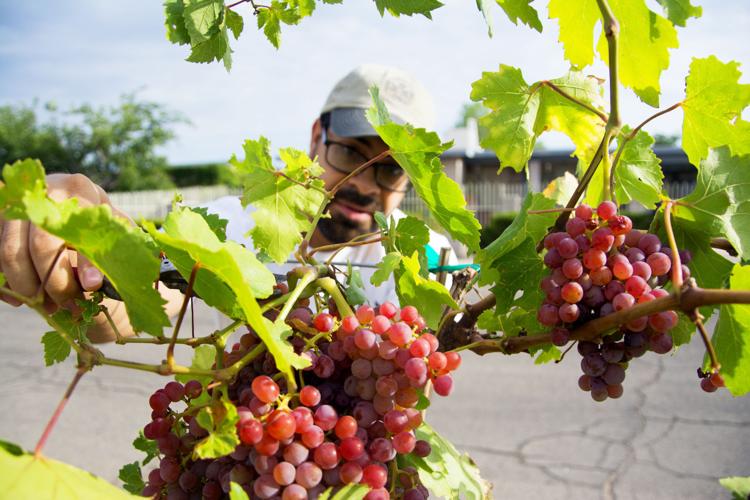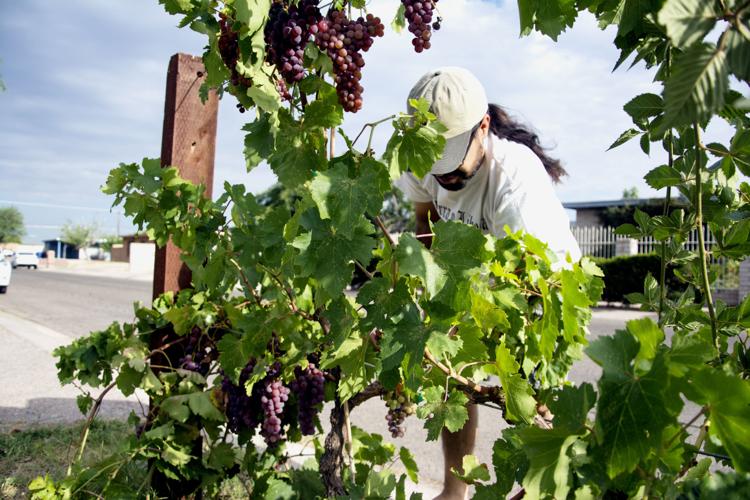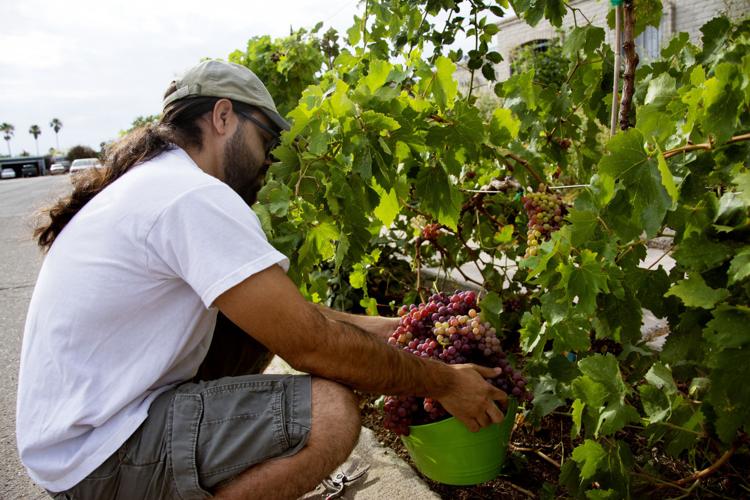Changemaker High School co-founder Luis A. Perales wants people to take gardening to the neighborhood streets — or at least the front yards.
He’s doing just that with his grapevines and a few blackberry plants. Perales is cultivating them in a narrow 60-square-foot strip of land between the sidewalk and street in front of his southside home near the Tucson International Airport.
Because of the urban agriculture ordinance approved this year, Tucsonans are allowed to grow edible plants in the city right of way in front of homes, says Rebecca Ruopp, principal planner with the city’s Office of Integrated Planning.
“You do need to keep things clean and safe,” she says. “Generally ... you can grow food in the right of way.”
Perales is doing more than growing fruit, however. He’s returning to his agricultural roots, developing community and preserving culture.
“Bring your skill on the street”
Take the idea that he’s growing table grapes unfenced in a common area.
For him, it’s a way to get to know his neighbors and see what’s going on.
A service truck parked in a driveway lets you know that a neighbor is a plumber, for instance, or owns a business, says Perales.
Gardeners don’t provide such cues because they tend to grow edible plants in the backyard.
“Bring your skill on the street,” he encourages gardeners. “Gardeners’ skills are hidden away.”
When people see you gardening, he continues, you start sharing tips or bartering food for services. “You’re just being good neighbors,” he says. “It starts a really nice process with this interaction.”
Because Perales is in front of the house to garden — he also grows edibles in the backyard — he becomes sort of a neighborhood watch volunteer.
“I get to see what’s normal in the neighborhood,” he says, and he can keep what he calls “eyes on the street.”
So far no one has taken any of his crop from the young, 2-year-old vines. “They’ve been very respectful,” he says.
This summer, in his first harvest year, Perales gathered about 40 pounds of Thompson seedless and Flame seedless grapes. Friends and family got the bulk of them.
He hopes to share more with neighbors in the future. He also brought cuttings to Changemaker High, where he is CEO, for the students to propagate and sell.
GARDENING AS CULTURE
Perales is using his growing experiences as part of his pursuit of a doctorate in Mexican-American studies at the University of Arizona. His research is focused on how the local gardening traditions of Mexican Americans are often set aside for more scientific growing practices.
He doesn’t discount the information that comes from science-based agricultural education organizations such as the University of Arizona Cooperative Extension.
But neither should historical growing practices by early settlers who handed them down through generations. “These are the folks who know how to live here best,” he maintains.
For instance, the Spaniards and, later, Mexicans used precious resources of good soil and adequate water to grow food, not waste them on grassy lawns, he says.
“We should be honoring what works here,” he insists.
Perales is doing that on a personal level. He wanted to grow grapes the way his grandparents did when they started commercial farms in Texas and Mexico. “We grew grapes growing up,” he recalls. “I was too young to know what it takes.”
He uses the right of way for the vines to experiment. He wanted to make the land useful after he had to fell a mesquite that was making the sidewalk buckle.
A drip system automatically irrigates the vineyards.
Perales posted a series of homemade videos on Facebook. They show updates on the second year of his vines, including how he pruned them so that they grow along a wire support system.
He shows his organic technique for handling damaging skeletonizer caterpillars–pulling infested leaves off and stomping them with his feet.
He also shows how to tell when grapes are ready for harvest.
Another practice that he didn’t record was one that came from his family: Leave some edibles behind. They help feed birds and other wildlife and add nutrients to the soil.
“Growing up I learned that you leave something for nature because nature gave you something.”






